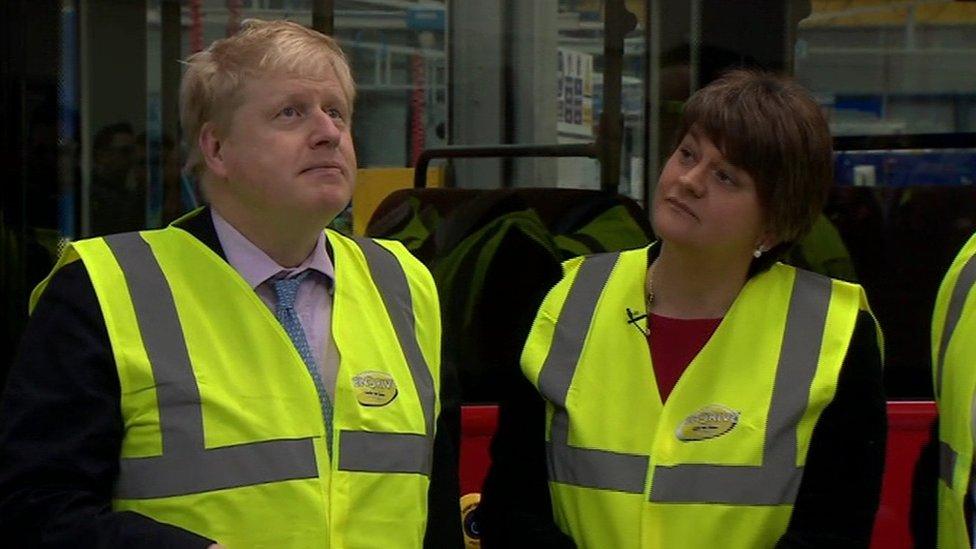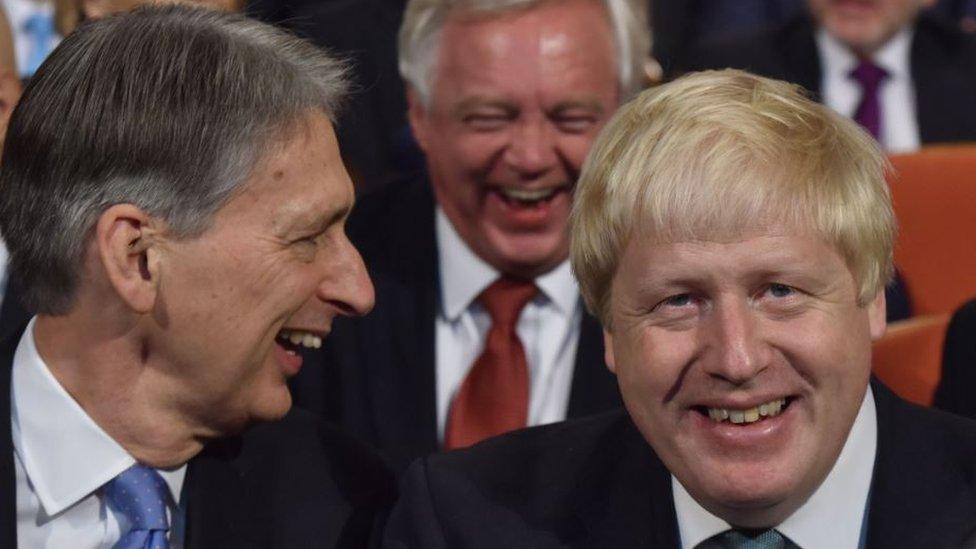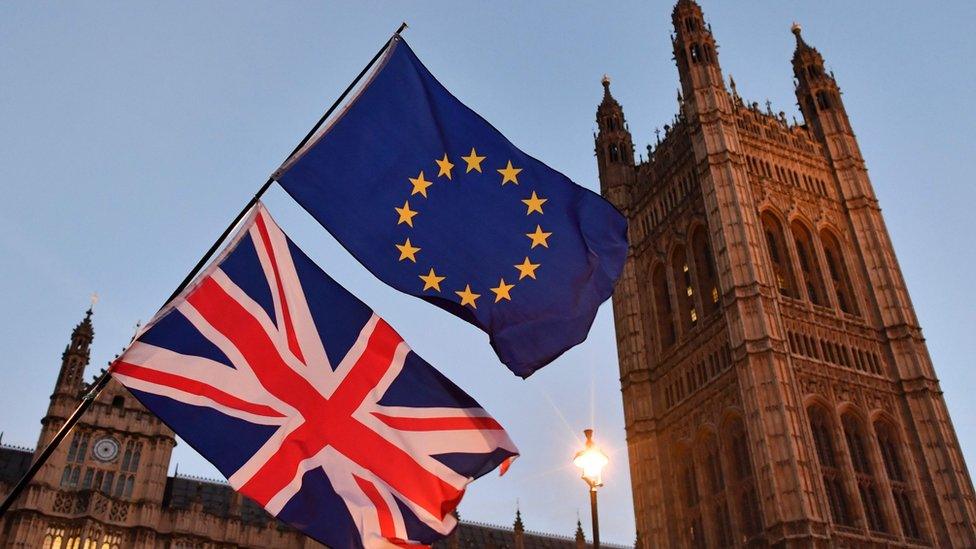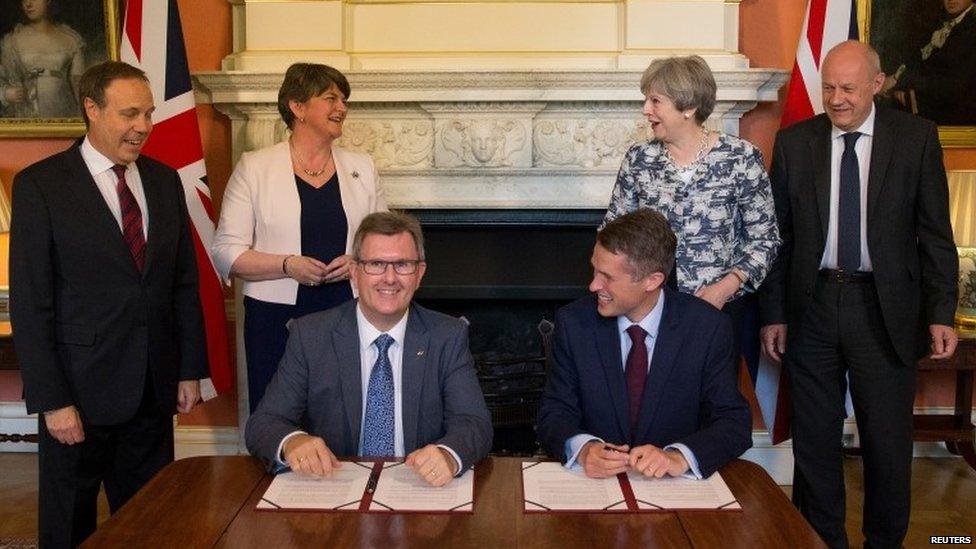Boris Johnson and Philip Hammond 'to attend DUP conference'
- Published
- comments

Boris Johnson - pictured with DUP leader Arlene Foster - is due to give a speech at the conference
Senior Conservatives Boris Johnson and Chancellor Philip Hammond are set to attend the Democratic Unionist Party's (DUP) conference, the BBC understands.
Their expected appearances at the event this weekend were first reported by the Impartial Reporter, external.
It comes amid the DUP piling pressure on Prime Minister Theresa May in opposition to her draft Brexit deal.
It is understood that Mr Hammond will give a speech to DUP members on Friday night.
Former foreign secretary Mr Johnson is expected to attend the conference on Saturday.
The DUP has been vehement in its opposition to Mrs May's Brexit deal, with their relationship becoming strained in recent weeks as a consequence.
'Seriously broken'
It has rejected the so-called Brexit backstop, which would allow the Irish border to remain frictionless in the event of the UK leaving the EU without securing an all-encompassing deal.

Philip Hammond (left) and Boris Johnson have very different views on Brexit
The backstop is a last-resort position that would result in Northern Ireland staying aligned to some rules of the EU single market, with goods going into the region being checked to see if they met EU standards.
The DUP has repeatedly said it would not accept any additional Northern Ireland-only checks, no matter where or how they take place.
The party is involved in an agreement with the Conservatives' minority government in which a financial package for Northern Ireland was secured in exchange for support in the House of Commons.
But on Monday, the DUP did not back the government on a number of amendments to its Finance Bill.
Instead, its 10 MPs abstained in the votes and supported one Labour Party amendment.
DUP MP Sammy Wilson said the government had "seriously broken" its commitment that Northern Ireland would not be treated differently from the rest of the UK in the Brexit agreement.
- Published20 November 2018

- Published30 December 2020

- Published20 November 2018

- Published16 October 2019
